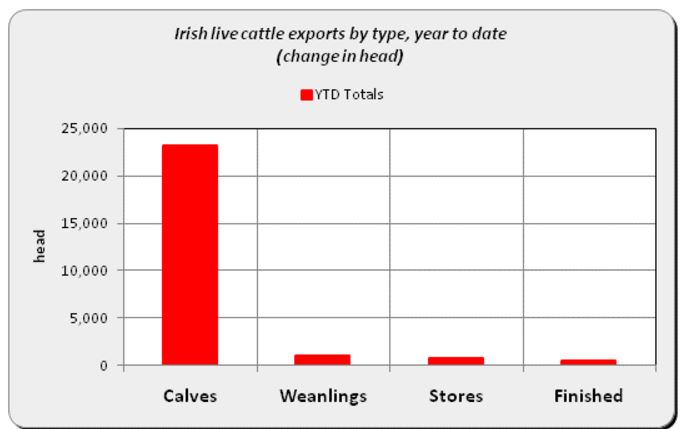A consignment of approximately 1,900 heavy Irish bulls is expected to depart for Libya today on-board the dedicated Express 1 livestock carrier.
The group of bulls, consisting of a range of breeds, has been gathered by Supreme Livestock for private Libyan buyers.
The vessel will be loaded under the supervision of Department of Agriculture veterinary officials following guidelines set out in the health certificate agreed between Irish and Libyan officials.
This will be the first shipment of Irish cattle to head to Libya this year. In 2016, some 2,162 Irish cattle were shipped to Libya – an increase of 1,729 on the 433 exported during 2015.
Exports remain in a positive position
Official figures show that some 105,809 cattle have been exported from Ireland up to the week ending May 6. This is an increase of 31,106 head or 41.6% on 2016.
Calf exports, destined for markets such as Holland and Spain, account for the majority of shipments from Ireland so far this year.
Weanling, store and finished cattle exports also remain in a positive position with shipments up by 4,072 head (94.9%), 1,106 head (30.5%) and 1,209 head (11.6%) respectively.
Turkish delight
Two boatloads of Irish cattle have already landed in Turkey this year, consisting of approximately 4,570 animals.
The shipments were organised by two different exporters, with one shipment containing heifers and the other bulls.
The Turkish market has grown in importance for Irish suckler farmers since the first boatload of Irish animals departed for the Middle Eastern market back in the autumn of 2016.
Last year, Meath-based livestock exporter Viastar shipped more than 19,000 cattle to Turkey. The consignments included both finished and weanling bulls.
It is predicted that an additional 100,000 extra finished cattle will come on stream in 2017. Increased exports this year are necessary to reduce the likelihood of a further increase in cattle supplies occurring in 2018.

